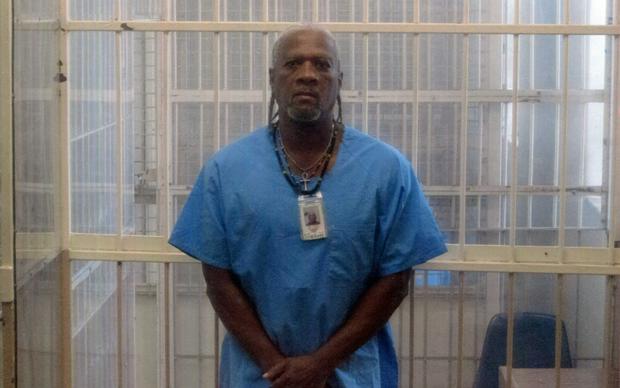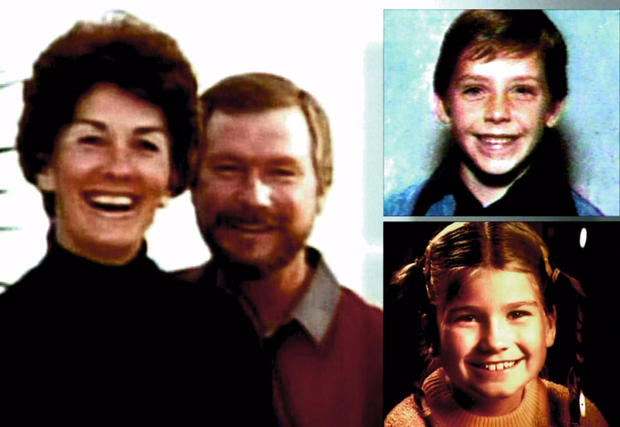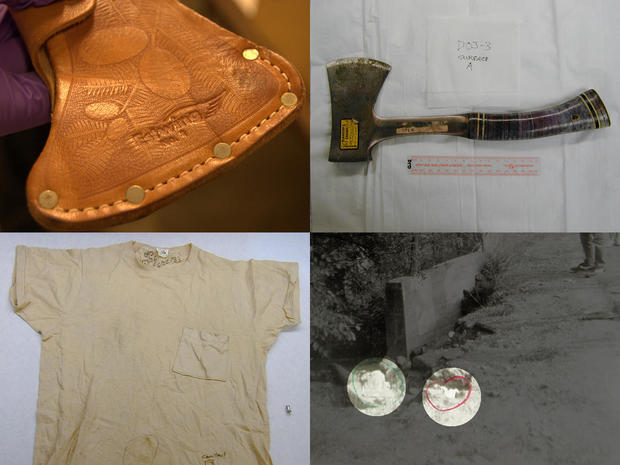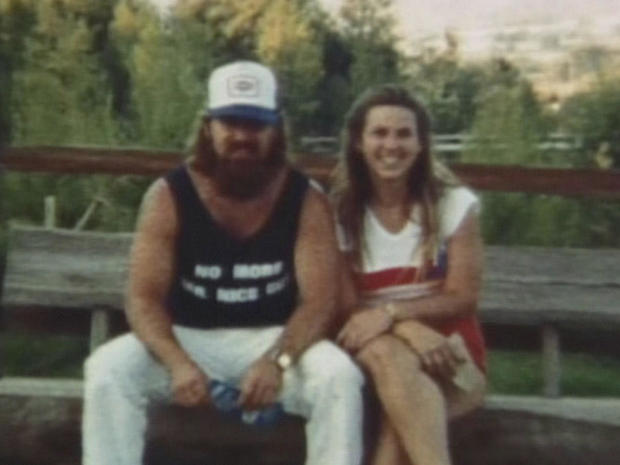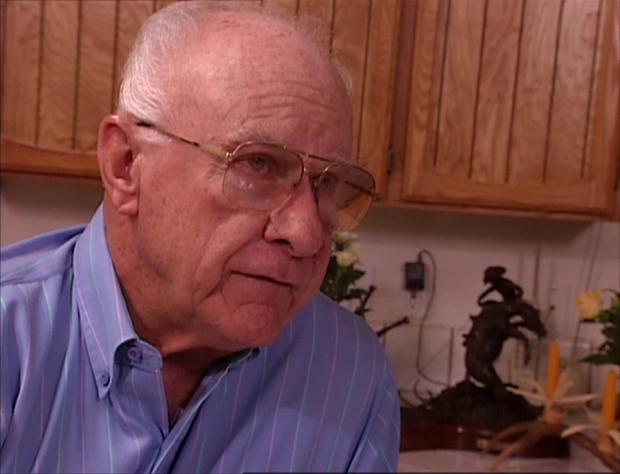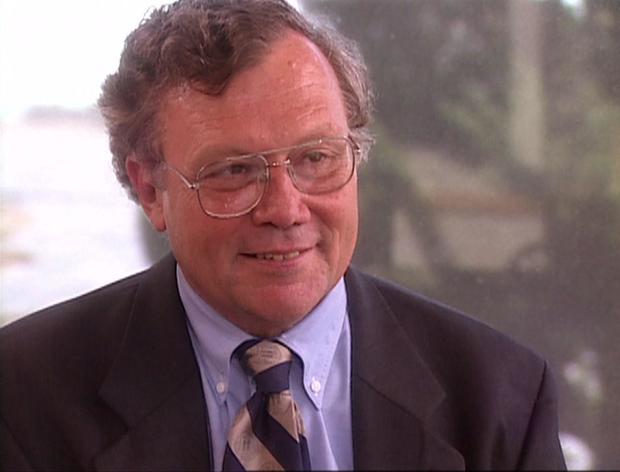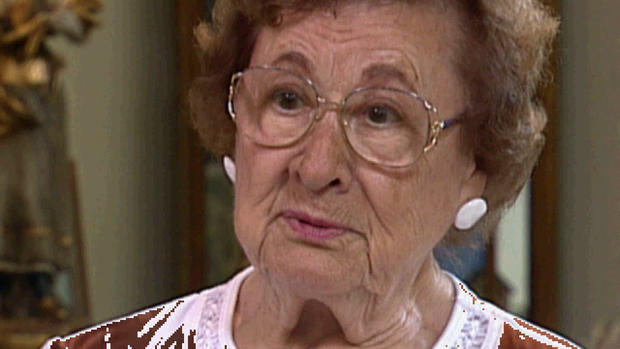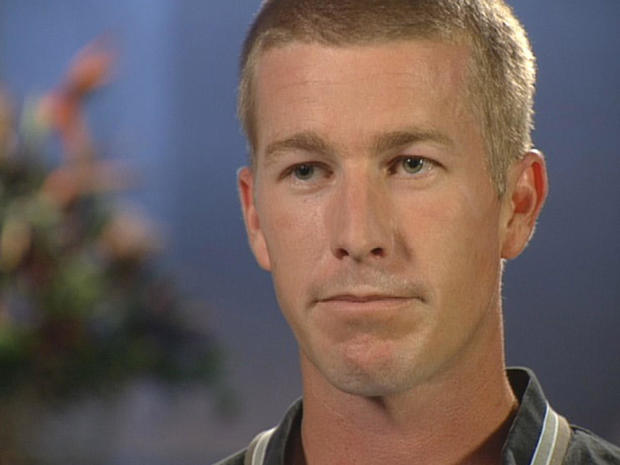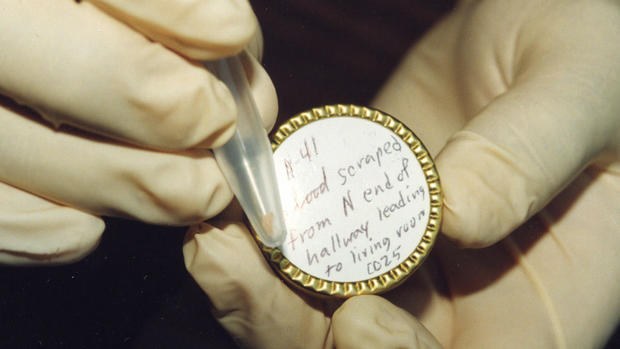A death row inmate's case is getting a fresh look after more than three decades. But evidence is missing and some witnesses are dead.
An unusual investigation quietly taking place in California could lead to a resolution of the most hotly debated death row cases in the country. Last May, Governor Gavin Newsom issued a rare executive order to launch an independent investigation into the case of Kevin Cooper, an inmate who was sentenced to death in 1985 for the murders of four people in Chino Hills, California. He has been on death row in San Quentin ever since.
CBS News' "48 Hours" began reporting on the case in 2000 after receiving several letters from Cooper, claiming his innocence and asking the show to investigate: "I Kevin Cooper am an innocent man, and I am on death row waiting to be murdered for something I didn't do!"
The controversial case dates back to June 5, 1983. Doug and Peggy Ryen were found murdered in their home, along with their 10-year-old daughter Jessica, and a young neighbor, 11-year-old Christopher Hughes. It was an extraordinarily brutal crime: The victims had been stabbed 143 times with three different weapons. Somehow, the Ryen's 8-year-old son Josh, whose throat was slashed and skull fractured, managed to survive.
Cooper, then 25 years old, had escaped two days earlier from a nearby prison. When San Bernardino investigators discovered Cooper had been hiding out in an empty home not far from the Ryen home, he became the main suspect.
Now 64 years old, Cooper has long claimed that he was framed. Investigators, he says, mishandled, tainted and even planted evidence against him, while destroying items that pointed to other suspects. Newsom's order gave law firm Morrison & Foerster the power to conduct the probe and attorneys are analyzing the entire case file, which spans three decades.
Investigators in 1983 said they found cigarette butts that belonged to Cooper inside the Ryen's station wagon, which had been stolen. A county criminalist determined that a drop of blood in the Ryen home was consistent with Cooper's blood type.
The trial — with a Black defendant charged in the brutal murders of a White family — sparked a racist reaction among some in the community. Outside the courthouse, crowds carried racist signs, and in one instance, a stuffed gorilla with a noose around its neck.
Cooper was convicted of four counts of first-degree murder and one count of attempted murder.
The goal of the governor's executive order: to break a stand-off between Cooper's defense team and the San Bernardino District Attorney's office over evidence in the case, particularly the results of recent DNA tests.
"The parties," wrote Newsom, "have starkly different views regarding how the results should be interpreted and the reliability and integrity of certain evidence."
There was evidence that pointed away from a single killer. Three weapons were used in the attack: an ice pick, a hatchet and a knife. Separately, three seats in the Ryens' vehicle had been stained with blood.
And while he was being treated in a hospital after the attack, Josh Ryen, the only survivor, indicated to a sheriff's deputy that there were three men present.
Josh's account wasn't precise: He couldn't speak because of his injuries and answered questions by squeezing the sheriff deputy's hand. Plus, he gave conflicting statements regarding the race of the men, first saying they were White and in a second interview that same day, that they were Hispanic.
Prosecutors theorized Cooper killed the family to steal money and a car, but nothing appeared to be taken from the house and there was money on the kitchen counter. A towel found down the road matched a set in the Ryens' home — but when Newsom ordered it tested with other evidence in 2019, the DNA profile didn't match any of the Ryens or Cooper.
And before Cooper's trial, a woman named Diana Roper went to a substation of the San Bernardino Sheriff's Office with evidence that she said connected a former boyfriend, Lee Furrow, to the murders.
Roper told deputies that on the night of the murders, Furrow had left their home wearing a tan T-shirt and jeans, but returned in bloody coveralls that she found in the closet. She turned the coveralls over to deputies, who took them and marked them as evidence. And a tan T-shirt was found on the road near the Ryen home — but when it was tested, the lab was unable to find even one full DNA profile on it that could be matched to a wearer.
Deputies spoke with Furrow, who denied any involvement in the murders. Later, and prior to trial, the coveralls were thrown out. They had never been tested.
Roper's statements and the discarded evidence are among the contested issues. The San Bernardino District Attorney's office dismissed Roper as an unreliable witness, and concluded Furrow had an alibi.
However, Cooper's defense attorneys have questioned from the beginning why the bloody coveralls were destroyed without testing. They believe that Furrow, a convicted killer of a young woman in an unrelated earlier case, may have been involved in the murders. Furrow has publicly and repeatedly denied any involvement. The sample from the towel didn't match Furrow, either.
The current investigators won't be able to talk to Roper. She, along with several other people involved in the case, including the San Bernardino County Sheriff at the time and David Negus, the public defender who represented Cooper at trial, are now deceased. But over the years, "48 Hours" has interviewed many of the key witnesses, including Roper, Negus and then-Sheriff Floyd Tidwell.
In an interview in 2000, Roper described Furrow as "Very violent. Very mean. Just evil. Evil person." She described how she found the coveralls: "It's a big walk-in closet with a door all the way through. And I looked down and here were these coveralls that I knew didn't belong there. So I looked at them and I'm kinda like, what is this? And I picked them up. And as I picked them up, the more I picked them up — then I saw the blood."
Roper did not know Cooper and said her friends warned her to keep quiet. "At the time, the people I ran around with — they just told me to keep my mouth shut. It was better a Black man than a White man. You know, that's the lifestyle I lived."
When asked in 2000 about the coveralls, Tidwell said that he had only vague memories of the incident but, "I think we eliminated that pretty quick … I'm very, very vague on it. I do recall some coveralls were turned in but I think it was established very quickly that that person could not have been involved so then it's set aside." When pressed for more details, Tidwell abruptly ended the interview.
Cooper's defense attorney, David Negus, who died in July 2021, told "48 Hours" in 2000 that he believed that the blood evidence that had been used to convict his client was tainted or even planted by authorities — allegations the prosecutor's office has denied in court papers and which judges have twice ruled unfounded.
"I've always felt that the integrity of that drop of blood was questionable," Negus said. "During the trial, I didn't have the strong evidence to demonstrate that. But that was what I felt."
Negus was troubled by the claim that Cooper had killed to steal the family's car. Prosecutors' basic argument was that Cooper killed the family because he needed the car to escape, but they never charged him with theft. "To me, that never made much sense because Kevin could easily have stolen the car and driven away without killing the family," he said. And without killing them, "he would not have had a gigantic manhunt looking for him all over the world."
What's more, Negus said Cooper's story never changed. "He always said he was innocent, even though if he'd been lying to me he'd know that would have hurt his case."
After Cooper was convicted and sent to death row, Mary Howell, the mother of Peggy Ryen, began to have grave doubts about his guilt. She, too, spoke extensively to "48 Hours" over the years. She died in 2008.
Josh Ryen, however, has not spoken to "48 Hours" since 2003, when he said Cooper "needs to pay for his crime, so we have closure."
"Kevin Cooper is a liar," he wrote in a 2018 letter to then-Governor Jerry Brown. "He lies about everything. When he is caught in his lies, he lies more and more. He gets other people to believe in and broadcast his lies."
Cooper's request for clemency, Josh Ryen wrote, "he richly does not deserve."
Josh Ryen told "48 Hours" in that 2003 interview that, despite indicating in the aftermath of the murders that there had been three men present, he could no longer recall that. He noted that he was 8 years old at the time and said three men had been to the home earlier in the day looking for work.
Dr. Lorna Forbes, a psychiatrist who treated Josh after the murders, told "48 Hours" in 2000 that young victims who experience extreme violence like Josh often suffer silently — that their mental trauma isn't obvious to most people. "It tends to make a child be more silent and keep his feelings to himself, and a little bit more isolated while they're trying to solve this," she said.
Forbes, who died in 2014, had hoped the state would investigate and conduct whatever tests were necessary to give Josh confidence that the killer had been caught. She said it was important for him, as it is for anyone in a similar situation, to understand he wasn't the cause of it and to accept that "that every possibility has been explored to make sure that this person is the one who did it."
Dead witnesses, shifting memories, lost — or discarded — evidence: These are all parts of a puzzle that lawyers with Morrison & Foerster are trying to piece together to give guidance to the governor on what further action he should take. Newsom, who has taken no position in the case, could grant Cooper a pardon, commute his death sentence or choose to do nothing and let Cooper remain on death row.
[Read about "48 Hours'" visit to Kevin Cooper in San Quentin.]

